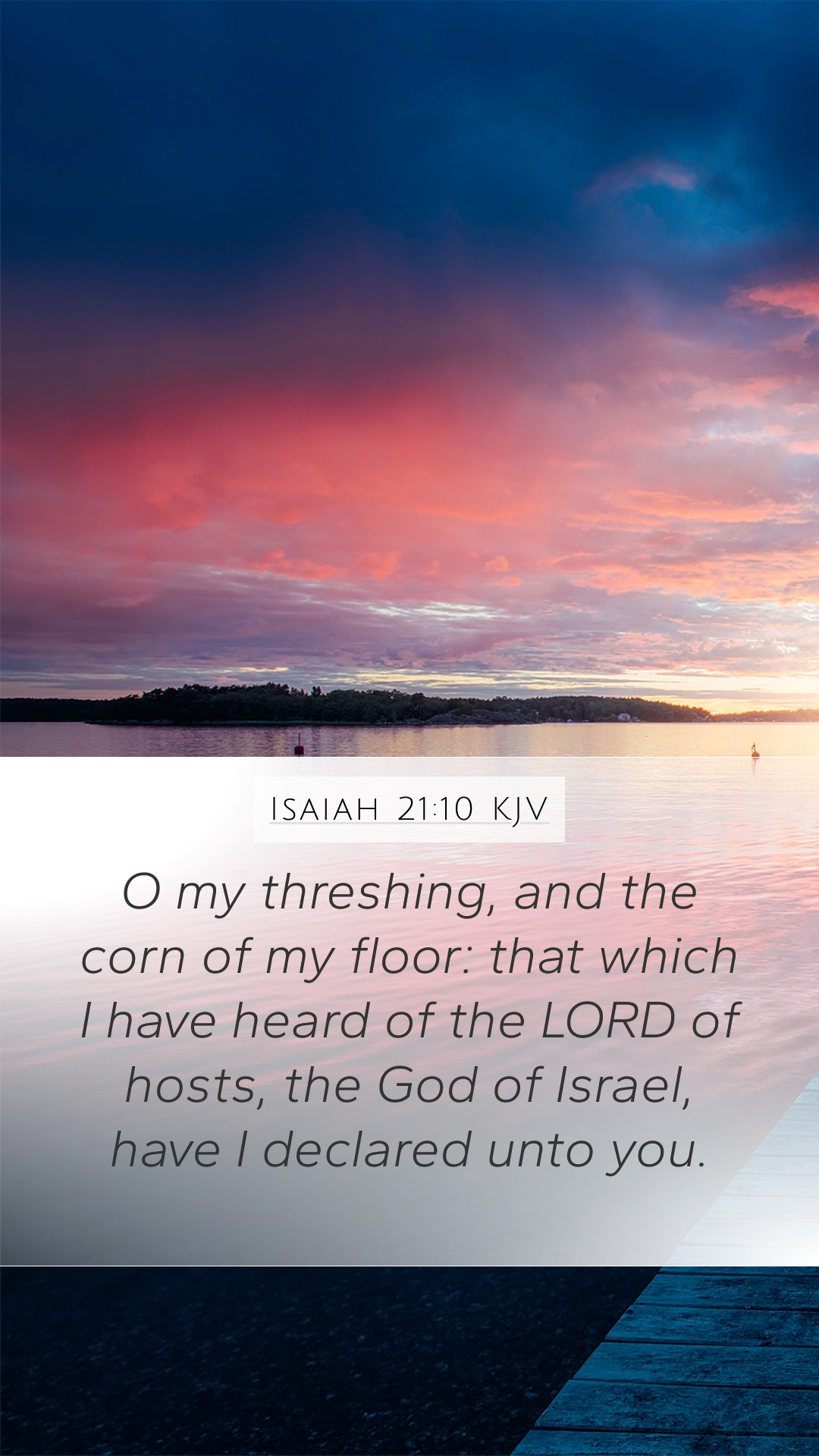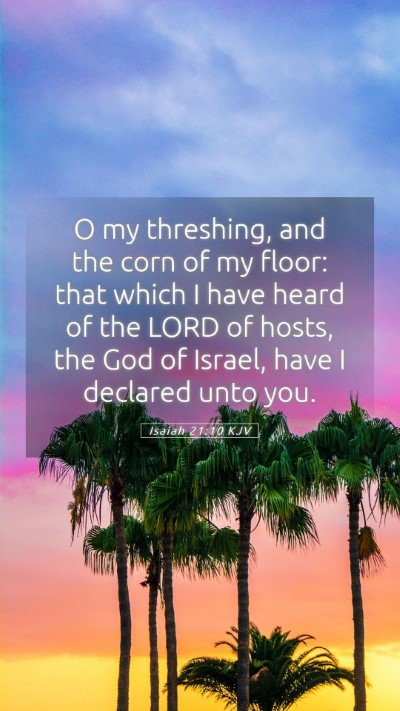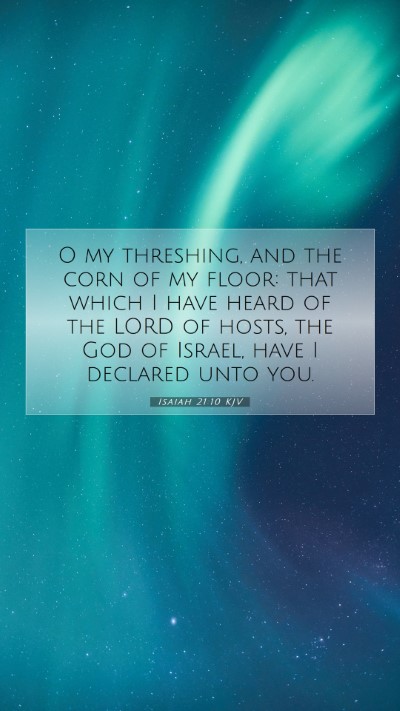Understanding Isaiah 21:10
Verse: Isaiah 21:10 - "O my threshing, and the grain of my floor: that which I have heard of the Lord of hosts, the God of Israel, have I declared unto you."
Overview
Isaiah 21:10 serves as a significant proclamation amid a larger prophetic context. Here, the prophet Isaiah shares a vision he received regarding the impending judgment and destruction against Babylon. The metaphor of "threshing" indicates the separating of wheat from chaff, symbolizing the judgment of God where the wicked are separated from the righteous.
Bible Verse Meanings
The phrase "O my threshing, and the grain of my floor" can be interpreted as a lamentation, expressing the anguish concerning Israel's fate amidst looming threats. According to Matthew Henry, the "threshing" can symbolize the trials and challenges that the people face, indicating their future suffering intertwined with God's righteous judgment.
Albert Barnes highlights how this imagery portrays the level of destruction that will occur, not only to Babylon but also as a consequence to God's people who may face similar ends if they reject His call. Within this context, the "grain of my floor" represents those who are faithful and will be preserved through God's judgment, contrasting those who will face severe consequences.
Bible Verse Interpretations
The interpretation of this verse goes beyond mere lamentation; it is a divine declaration. Adam Clarke emphasizes that Isaiah conveys God's messages as a faithful prophet. The acknowledgment of "that which I have heard of the Lord of hosts" signifies Isaiah’s role in delivering God's word to an audience that may not heed it. This relationship between God and His messenger reflects a deeper theological understanding of prophecies where the prophet acts as a bridge connecting the divine will with humanity.
Scripture Analysis
-
Historical Context: This verse appears during a tumultuous time for Israel, marked by impending threats from surrounding nations, particularly Babylon. Understanding the geopolitical climate helps to grasp the weightiness of Isaiah's messages.
-
Theological Insight: The mention of "the God of Israel" asserts God’s sovereignty and loyalty to His people. Isaiah's declarations can be seen as a reminder of God's covenant with Israel which calls for repentance and a return to His ways.
Bible Study Insights
Isaiah 21:10 can serve as a launching point for many Bible study lessons aimed at exploring the themes of judgment, faithfulness, and the role of prophets. In study groups, discussing the implications of the judgments pronounced can lead to greater insights into the necessity of repentance and the hope of salvation.
Application of Scripture
For application in daily life, understanding scripture on judgment and accountability may guide individuals to introspect on their own faith journeys and the importance of staying true to God's commandments. This verse encourages individuals to consider their standing with God and the implications of turning away from His teachings.
Cross References
- Jeremiah 51:33 - "For thus says the Lord of hosts, the God of Israel: The daughter of Babylon is like a threshing floor when it is time to thresh her..."
- Micah 4:12 - “But they do not know the thoughts of the Lord, nor do they understand His plan...”
- Luke 3:17 - “His winnowing fork is in His hand to clear His threshing floor...”
Conclusion
The depth of Isaiah 21:10 furnishes rich bible verse commentary insights that assist in understanding not only this particular passage but also the broader themes within the book of Isaiah. By examining this verse through various lenses of biblical exegesis, individuals can appreciate the fullness of God’s message to His people and its relevance throughout history and in modern contexts.


